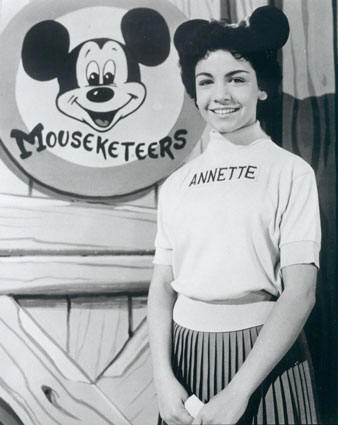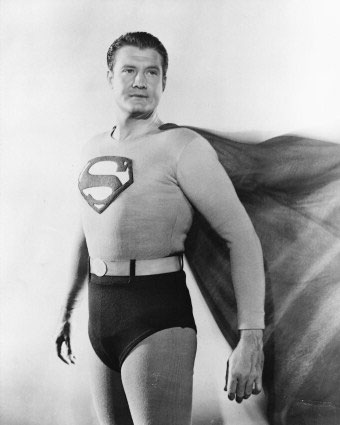TV Used To Be Fun
God gave us memories that we might have roses in December. ~J.M. Barrie
A Walk Down Memory Lane With Pictures
TV was pretty good when I grew up... Yes, he had no color or High-Def but we have great content with real family values.
Remember "Too the moon!"

The Honeymooners is an American television situation comedy produced by Jackie Gleason enterprises, inc. for CBS from 1955–56. It was based on characters developed by Jackie Gleason in 1951 and popularized in a series of sketches first performed on the successful variety show Cavalcade of Stars, and subsequently on The Jackie Gleason Show. The show was set in the Bensonhurst, Brooklyn apartment of Ralph Kramden (Gleason) and his wife Alice (Audrey Meadows), a struggling working class couple, and also featured upstairs neighbors Ed Norton (Art Carney) and his wife Trixie (Joyce Randolph).
The Honeymooners debuted as a half-hour series on October 1, 1955. Although initially a ratings success—it was the #2 show in the United States—it faced stiff competition from the popular Perry Como Show. The show eventually dropped to #19, and production ended after 39 episodes (now referred to as the "Classic 39"). The final episode of The Honeymooners aired on September 22, 1956. Gleason revived "The Honeymooners" as a sketch in his variety shows, most notably as part of a 1966–70 version of The Jackie Gleason Show.
Despite its relatively brief run, The Honeymooners is considered one of the premier examples of American television comedy.
Annette And The Mickey Mouse Club

She was so beautiful!
The Mickey Mouse Club was a long-running American variety television series that began in 1955, produced by Walt Disney Productions and televised by the American Broadcasting Company, featuring a regular but ever-changing cast of teenage performers.
The Mickey Mouse Club was created by Walt Disney. The series has been revived, reformatted and reimagined several times since its initial 1955-1959 run on ABC. The original series has been repackaged and rerun several times over the decades.
Born in Utica, New York to an Italian-American family, she took dancing and music lessons as a child to try to overcome shyness. Her family had moved to southern California when she was four years old.
Batman On Television

The world was saved once a week!
Batman is a 1960s American television series, based on the DC comic book character Batman. It aired on the American Broadcasting Company (ABC) for 2½ seasons from January 12, 1966 to March 14, 1968.
Because the series had two weekly installments for most of its tenure, it contained the same number of episodes as a five year or even a five and a half year run by today's standards (shooting 22-24 episodes per season)
I was just completing college and the fraternity house was going nuts when Batman would go on the air!
It was a true craze!
Gene Autry Rode Into Our Lives

White hat, no blood, good guy finishes first!
Hw was acutally Orvon Gene Autry (September 29, 1907 – October 2, 1998) was an American performer who gained fame as The Singing Cowboy on the radio, in movies and on television.
He signed a recording deal with Columbia Records in 1931. He worked in Chicago, Illinois, on the WLS (AM) radio show National Barn Dance for four years with his own show where he met singer/songwriter Smiley Burnette. In his early recording career Autry covered various genres, including a labor song, "The Death of Mother Jones" in 1931. But his first hit was in 1932 with That Silver-Haired Daddy of Mine, a duet with fellow railroad man, Jimmy Long. Autry also sang the classic Ray Whitley hit "Back in the Saddle Again". Autry also sang many Christmas songs including "Santa Claus Is Coming to Town", his own composition "Here Comes Santa Claus", "Frosty the Snowman" and probably his biggest hit ever, "Rudolph the Red-Nosed Reindeer".
Autry created the Cowboy Code or Cowboy Commandments in response to his young radio listeners aspiring to be just like Gene.
- The Cowboy must never shoot first, hit a smaller man, or take unfair advantage.
- He must never go back on his word, or a trust confided in him.
- He must always tell the truth.
- He must be gentle with children, the elderly, and animals.
- He must not advocate or possess racially or religiously intolerant ideas.
- He must help people in distress.
- He must be a good worker.
- He must keep himself clean in thought, speech, action, and personal habits.
- He must respect women, parents, and his nation's laws.
- The Cowboy is a patriot.
Barney Fife Was Our Friend

A good man!
Barney is often overly analytical and alarmist about benign situations, such as the modest Mayberry crime scene. He takes a minor infraction, blows it out of proportion, and then concocts an elaborate plan (sometimes involving inept civilians, like Otis Campbell or Gomer Pyle) to resolve it.
This only inflicts mass chaos for Andy to quell. Despite his failings, Barney is passionate about law enforcement, regularly spouting off penal codes and ordinances to thugs and jaywalkers alike. An emotional powderkeg, Barney easily projects panic, despair, fear or other extreme reactions. He has what he describes as a "low sugar blood level".
He is smug and self-confident until a real-life situation surfaces, wherein he becomes flustered. Outwardly "a man of the world", Barney is truly naïve and easily duped. Though constantly warned by Andy, he falls for countless scams. This gullibility is evident in an episode ("Barney's First Car") where he is conned into buying a lemon from a crafty old widow.
A gossip and gadfly, Barney is known for blabbing both personal and police secrets (such as seeing Andy examining women's rings at the jewlery store, the locale and time of a stakeout, or an armored car full of gold coming through the town). This often makes him appear as a petty halfwit, though at heart he is a caring, amiable soul. Despite a knack for exasperating the townsfolk, Barney is fondly embraced by most of them
When Family Really Counted...

Too bad kids today aren't like this!
No radio, no TV, no friggin' computers!
Our Gang, also known as The Little Rascals or Hal Roach's Rascals, was a long-lived series of American comedy short films about a troupe of poor neighborhood children and the adventures they had together. Created by comedy producer Hal Roach, Our Gang was produced at the Roach studio starting in 1922 as a silent short subject series.
Roach changed distributors from Pathé to Metro-Goldwyn-Mayer (MGM) in 1927, went to sound in 1929, and continued production until 1938, when he sold the series to MGM. MGM continued producing the comedies until 1944.
A total of 220 shorts and one feature film, General Spanky, were eventually produced, featuring over forty-one child actors. In the mid-1950s, the 80 Roach-produced shorts with sound were syndicated for television under the title The Little Rascals, as MGM retained the rights to the Our Gang trademark.
Superman Arrived To Save The World

Truth, justice, and the American way!
Superman is a fictional character and regarded as the most influential and popular superhero of DC Comics. Created by Canadian-born artist Joe Shuster and American writer Jerry Siegel in 1932 and sold to Detective Comics, Inc. in 1938, Superman first appeared in Action Comics #1 (June 1938) and subsequently appeared in various radio serials, television programs, films, newspaper strips, and video games.
With a premise that taps into adolescent fantasy, Superman is born Kal-El on the alien planet Krypton, before being rocketed to Earth as an infant by his scientist father moments before the planet's destruction. Adopted and raised by a Kansas farmer and his wife, the child is raised as Clark Kent, and imbued with a strong moral compass.
Upon reaching maturity the character develops superhuman abilities, resolving to use these for the benefit of humanity. With the success of his adventures, Superman helped to create the superhero genre and establish its primacy within the American comic book.
Black and White... Do You Understand?
Black and White (Under age 40? You won't understand)
- You could hardly see for all the snow,
- Spread the rabbit ears as far as they go.
- Pull a chair up to the TV set,
- "Good Night, David. Good Night, Chet."
- Depending on the channel you tuned,
- You got Rob and Laura or Ward and June.
- It felt so good. It felt so right.
- Life looked better in black and white.
- I Love Lucy
- The Real McCoy's,
- Dennis the Menace, the Cleaver boys,
- Rawhide, Gunsmoke, Wagon Train,
- Superman, Jimmy and Lois Lane.
- Father Knows Best, Patty Duke,
- Rin TinTin and Lassie too,
- Donna Reed on Thursday night! --
- Life looked better in black and white.
- Iwanna go back to black and white.
- Everything always turned out right.
- Simple people, simple lives...
- Good guys always won the fights.
- Now nothing is the way it seems,
- In living color on the TV screen.
- Too many murders, too many fights,
- I wanna go back to black and white.
- In God they trusted, alone in bed, they slept,
- A promise made was a promise kept.
- They never cussed or broke their vows.
- They'd never make the network now.
- But if I could, I'd rather be
- In a TV town in '53.
- It felt so good. It felt so right.
- Life looked better in black and white.
- I'd trade all the channels on the satellite,
- If I could just turn back the clock tonight
- To when everybody knew wrong from right.
Pass this to someone (over age 40, of course), and brighten their day by helping them to remember that life's most simple pleasures are very often the best!